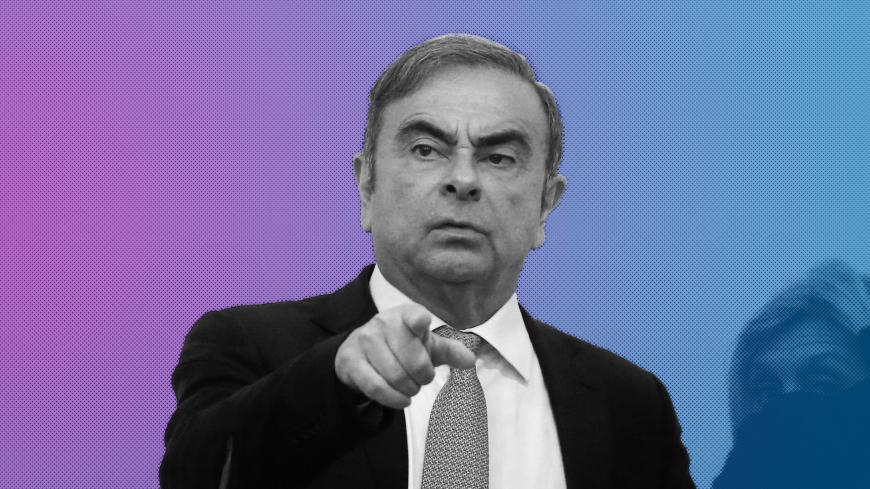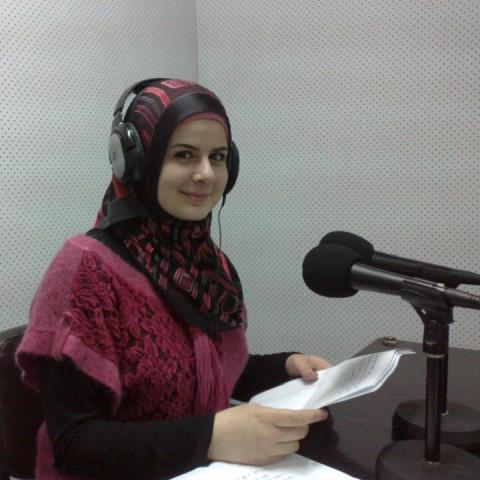BEIRUT — The case of Carlos Ghosn has come to dominate world public opinion in recent days. The former CEO of the Renault-Nissan-Mitsubishi auto empire escaped house arrest in Tokyo in a Hollywood-style plot Dec. 29. He made his way to his homeland Lebanon. Ghosn, 65, holds Lebanese, French and Brazilian citizenship, and has a net worth of approximately $120 million, according to Bloomberg.
Ghosn was imprisoned in Japan in November 2018 on charges of financial misconduct, tax evasion and using Nissan money for private investments. Japanese authorities released him in April 2019 on a bail of 500 million yen ($4.5 million), but he remained under house arrest.
Ghosn said the decision to escape was the most difficult decision of his life. At a press conference in Beirut Jan. 8, he said he was held "hostage" and had only two options: die in Japan or flee. Ghosn lashed out at Japanese prosecutors for preventing him from communicating with his wife, Carol.
According to Japanese media, Ghosn escaped with the help of two collaborators. They rode a bullet train from Tokyo's Shinagawa station to Osaka. They checked into a hotel near Kansai International Airport and the two collaborators were spotted leaving the hotel with two boxes. It is believed that Ghosn was hiding in a box, with holes drilled in the bottom to help him breathe.
Ghosn landed in Istanbul Dec. 30, and headed to Lebanon. An official at the Japanese Ministry of Transportation told France Press that luggage inspection is not mandatory for operators of private jets, and that the boxes were too big for the airport X-ray machines.
Lebanon received an international arrest warrant, or Red Notice, from Interpol to extradite Ghosn Jan. 2. Brig. Gen. Maurice Abu Zaidan, the director of Lebanon's Central Criminal Investigations Department, questioned Ghosn Jan. 9.
Edgar Qabout, a lawyer and professor at Lebanon's Sagesse University, told Al-Monitor that Lebanon and Japan do not have an extradition agreement and that Lebanese criminal law does not allow the extradition of citizens to foreign countries for trial. The same applies to France and Brazil.
As of October 2018, Qabout said, Japan has extradition treaties only with the United States and South Korea. “The Red Notice is not binding for Lebanon and does not permit arresting Ghosn without a decision by the Lebanese judiciary," he said. "But it enables the public prosecutor with the Court of Cassation to initiate investigations on whether Ghosn has committed violations and crimes punishable by Lebanese law.”
While Ghosn said at the press conference that he was not above the law, Qabout said that Lebanon and Japan are among the 140 countries that signed the United Nations Convention against Corruption, which was adopted by the UN General Assembly in 2003 and entered into force in 2005.
Japan, he said, may invoke the convention to demand the return of Ghosn. “Meanwhile, the Lebanese courts may invoke Article 19 of the criminal code in Ghosn’s case, which states that Lebanese laws apply to every Lebanese citizen who commits crimes outside the Lebanese territory,” he said.
Lebanese activists have shared photos of Ghosn on social media depicting his visit to Israel in January 2008 in his capacity as director the Renault-Nissan-Mitsubishi Alliance. Ghosn met Israeli President Shimon Peres and Prime Minister Ehud Olmert. He also concluded an agreement with an Israeli company that manufactures electric cars.
Ghosn responded to criticism of his Israel visit at the press conference, saying he had entered Israel as a French official in the Renault Company, not as a Lebanese citizen.
“I apologize to the Lebanese people because of my visit to Israel,” Ghosn said.
Lebanese law prohibits contact with the Israelis, Qabout said. Yet Ghosn, because his visit was in his capacity as CEO of a company subject to French and Japanese laws, argued that such a visit was not in his personal capacity or with the intent of normalization.
Lebanese attorneys Hassan Bazzi, Jad Tohme and Ali Abbas filed a claim against Ghosn due to his “economic dealings with Israel.” Public prosecutor Ghassan Oueidat questioned Ghosn Jan. 9 with regard to this claim.
Bazzi told Al-Monitor that Article 1 of Lebanon's 1955 anti-Israel boycott law prohibits “every natural or legal person from concluding, in person or through a medium, an agreement with bodies or persons residing in Israel or holding its nationality or working for or on its behalf, whenever the subject of the agreement is a commercial deal or financial transactions or any other dealing of any nature whatsoever.”
He noted that under the Lebanese criminal code, dealing with Israel is a felony punishable by hard labor. “Entering the enemy country is a misdemeanor sanctioned by one-year imprisonment, pursuant to Article 285 of the criminal code,” Bazzi added.
Commenting on the Red Notice, Bazzi pointed out that the judge released Ghosn against proof of residence and imposed a travel ban. The Lebanese judiciary asked the Japanese judiciary to hand over Ghosn’s file for translation and examination.
While a number of Lebanese oppose Ghosn’s visit to Israel, others expressed sympathy for him on social media, condemning the harassment he endured and the threats to his family.
Walid Jumblatt, the leader of the Progressive Socialist Party, tweeted Jan. 9 that Ghosn should be named Lebanon's energy minister to help overcome the country's public debt crisis. Ghosn responded positively, stating that he has no political aspirations but is willing to use his expertise in Lebanon's best interest.






